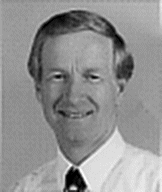


Letter from the President
A Critical Time for Databases

A recent issue of Chemical and Engineering News highlighted current debate about the protection of databases and ownership and access to the data in them. This is an issue that vitally concerns the crystallographic community. The structural data produced by crystallography are of immense value to chemists, biologists and physicists, and have wide application, for example to the design of materials and pharmaceuticals.
Databases need protection to avoid the "pirating" of their contents by others wishing to set up competing, commercially-driven enterprises. At the same time they rely on the willingness of scientists to deposit their primary data. If databases are seen to "own" the data, will crystallographers continue to freely deposit the results of their research? Will some seek to sell their data instead? Will the costs of access to databases become prohibitive to those who lack high levels of research funding? How will databases be funded in future? At present a wide range of models exist, from fully publicly-funded, to essentially commercial operations.
It is clear that the IUCr has an important role to play. Crystallographers not only generate much of the primary data, but are also major users. Historically we have strongly advocated the deposition of structural and diffraction data for the benefit of all. It is for this reason that a Database Committee of the IUCr was set up following the Seattle Congress. Chaired by Helen Berman (Rutgers University) it has representation from the major structural databases, and will serve to develop policy in this critical area. It is essential that crystallographers let their views be known.
My own view is that crystallographic data must continue to be freely deposited and remain readily available to all. The concept of full and open exchange is vital to the progress of science. Equity issues are also important. Accessible databases offer scientists in developing and under-resourced countries an unparalleled opportunity to participate in international science, to the benefit both of science and of human relations.
Finally we all owe a great debt to individuals whose science and idealism have helped shape the IUCr. Many will have been deeply saddened by the tragic death recently of Ted Maslen. An obituary appears in this issue, and I, along with so many others, will miss him greatly as a friend, as a scientist, and as a man of high ideals.
Edward N. Baker

